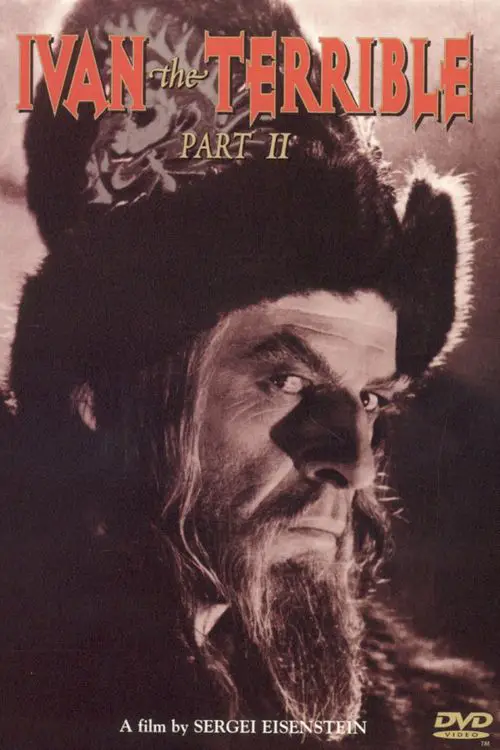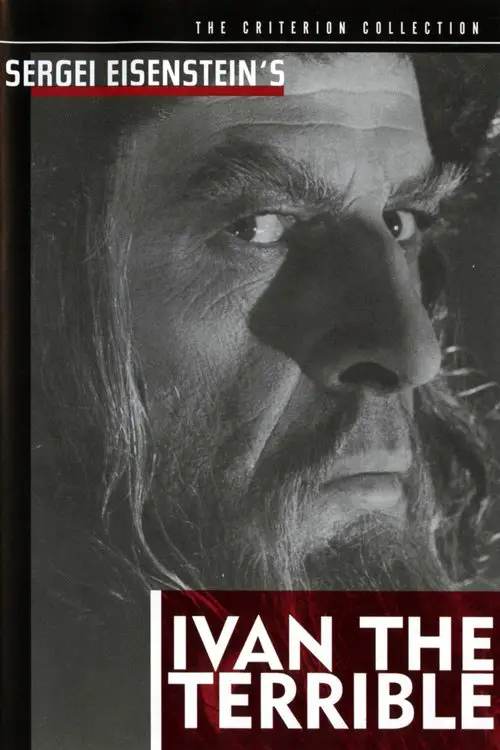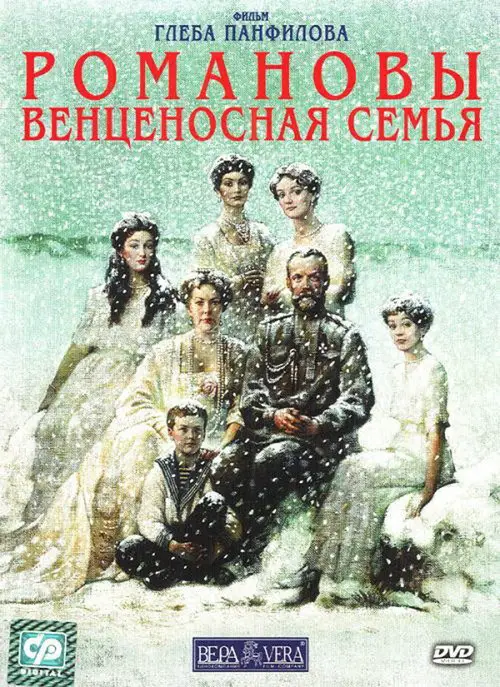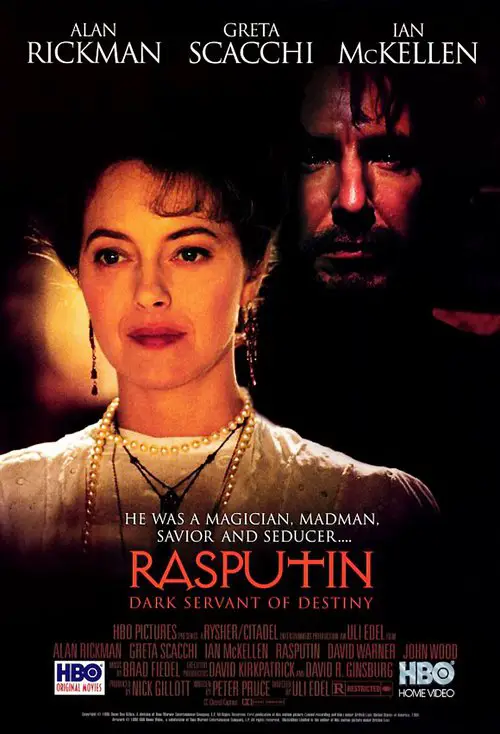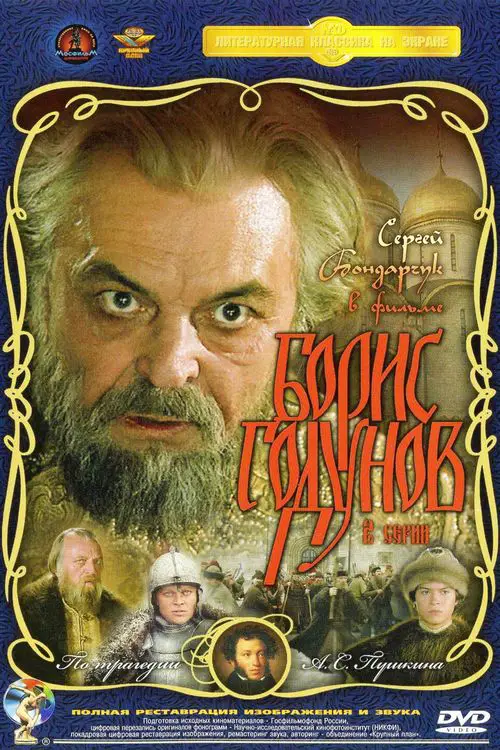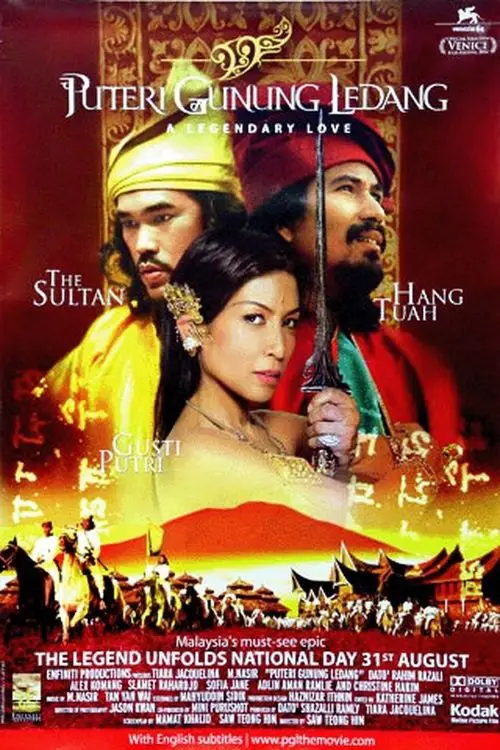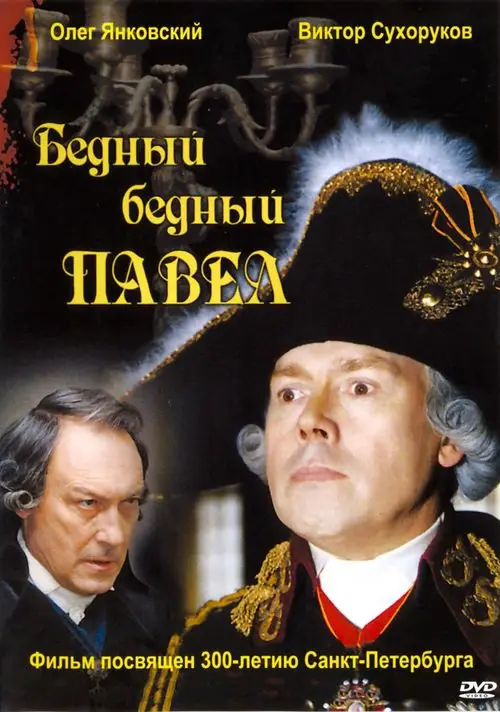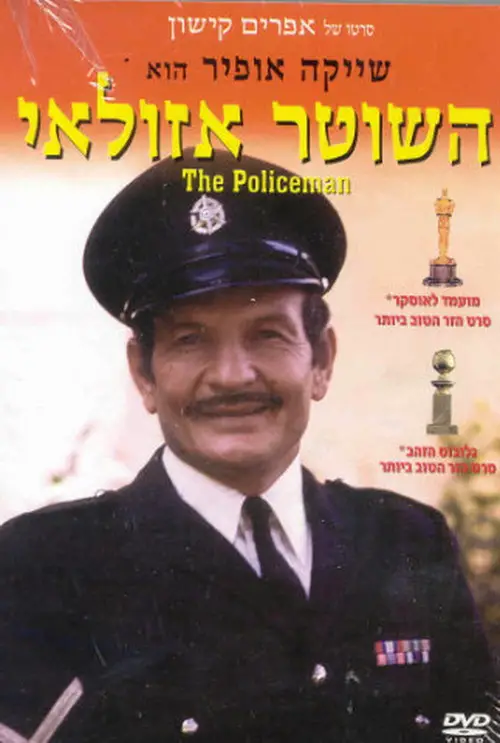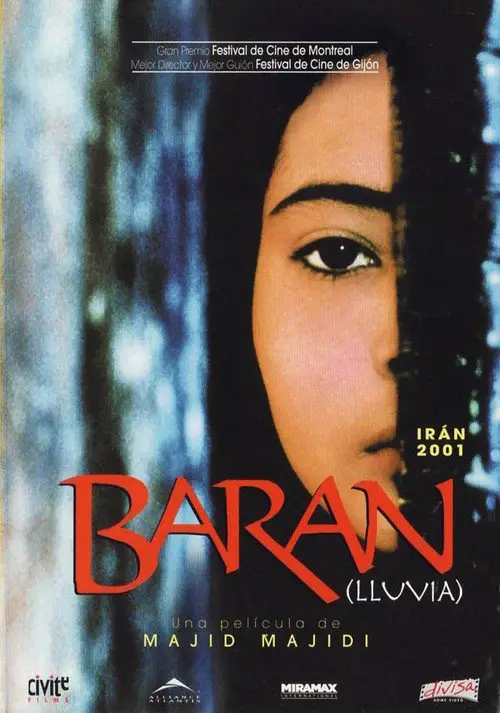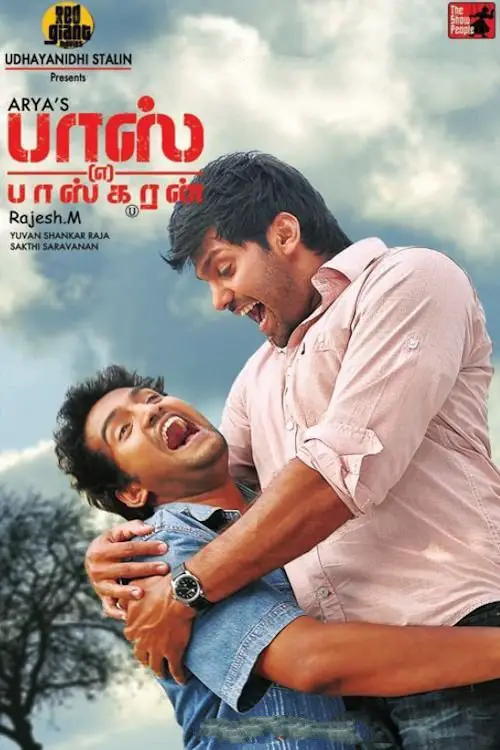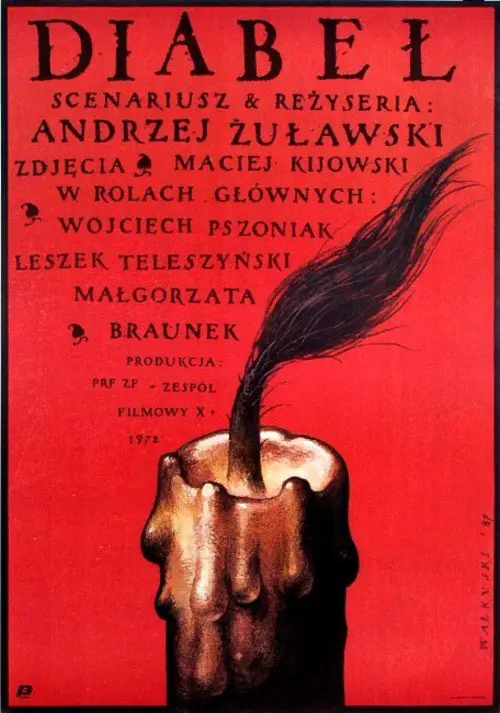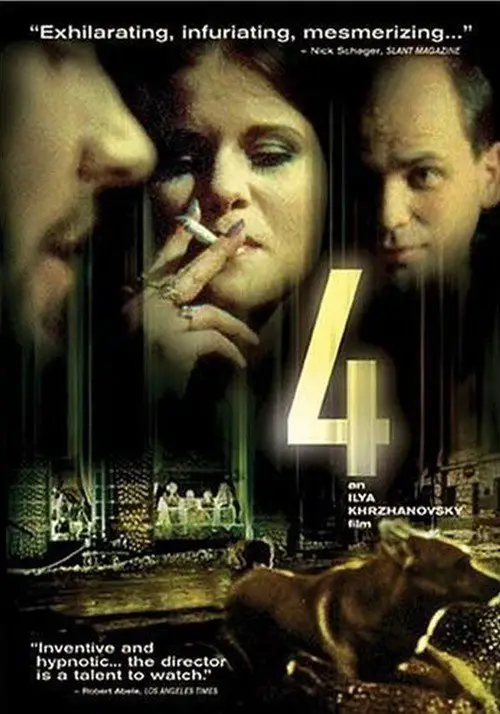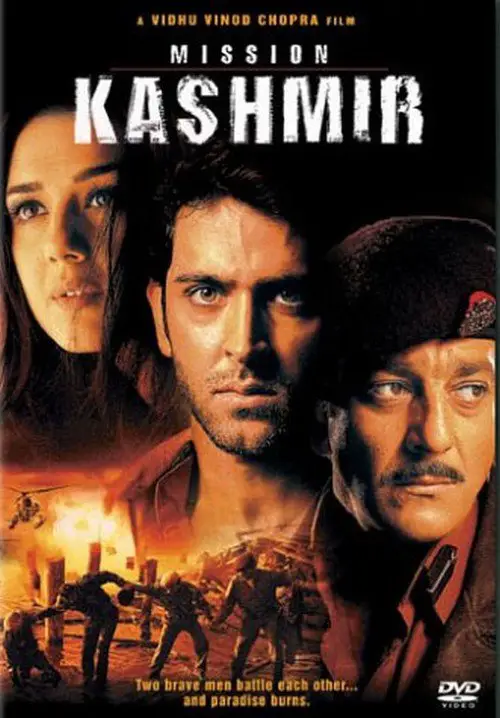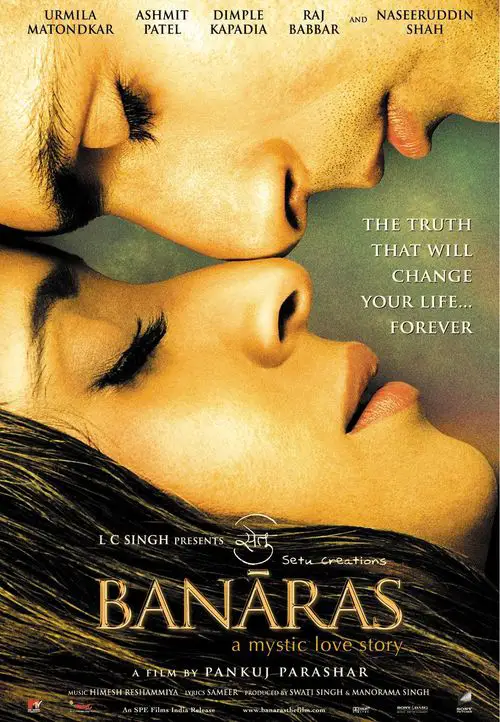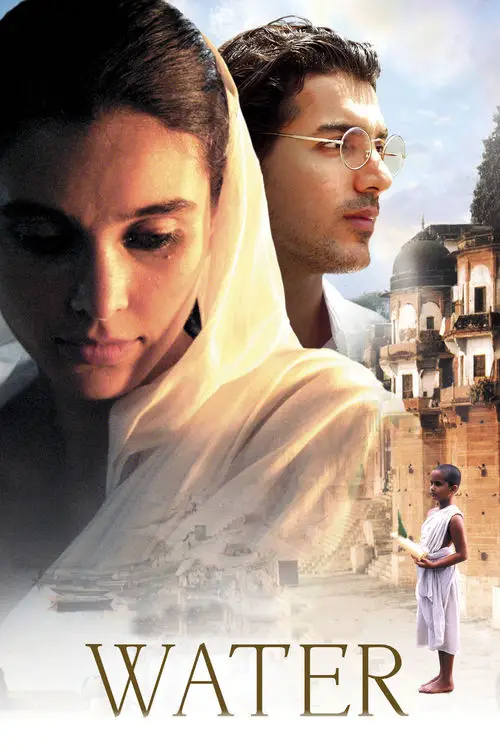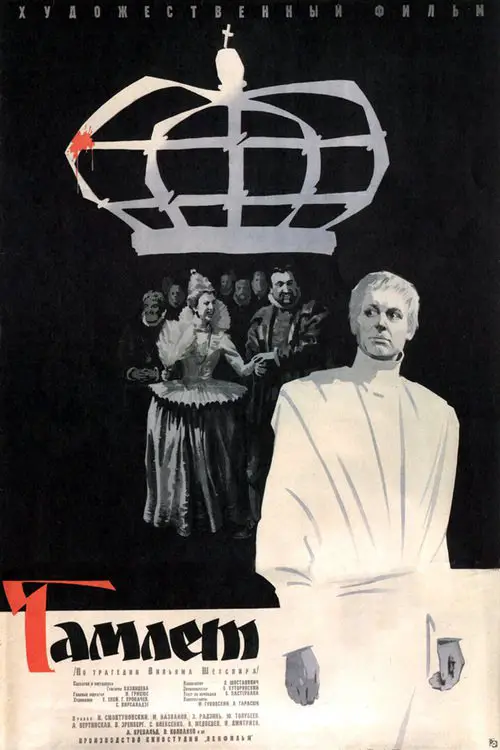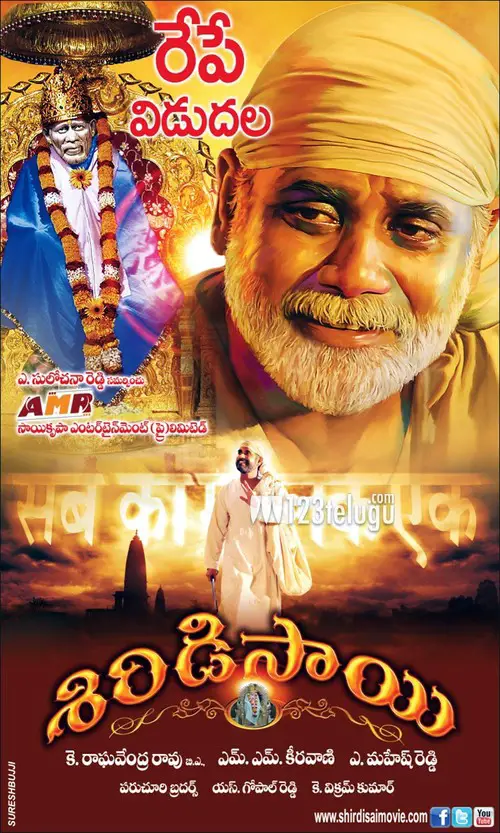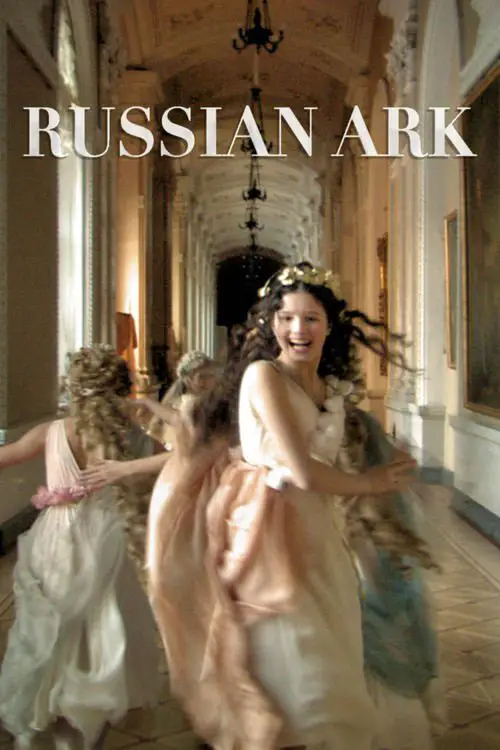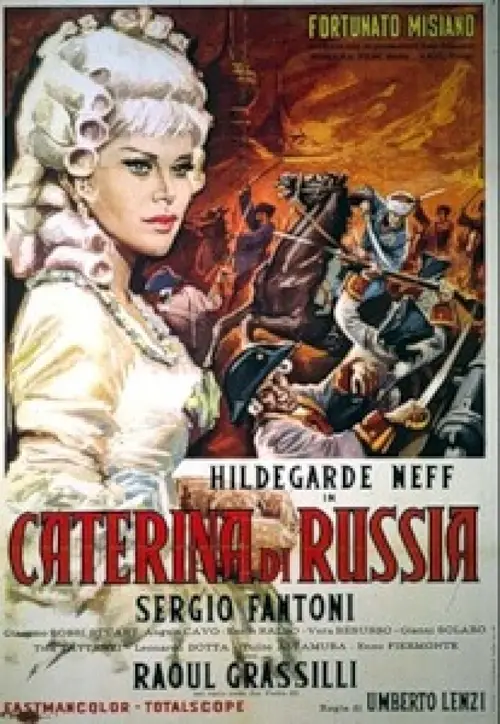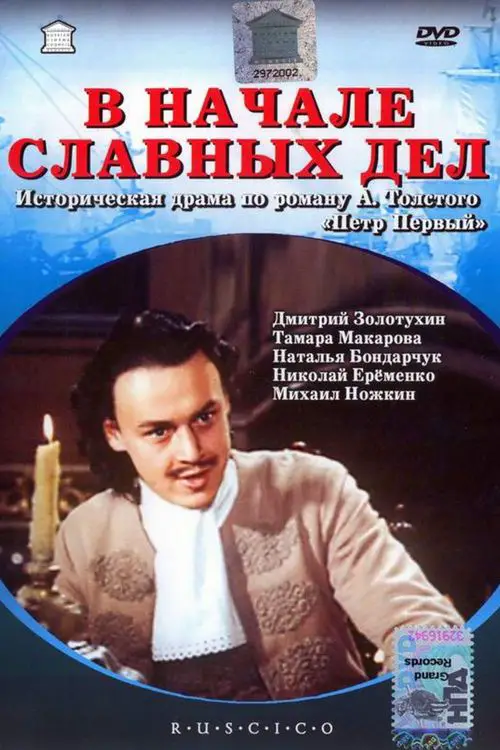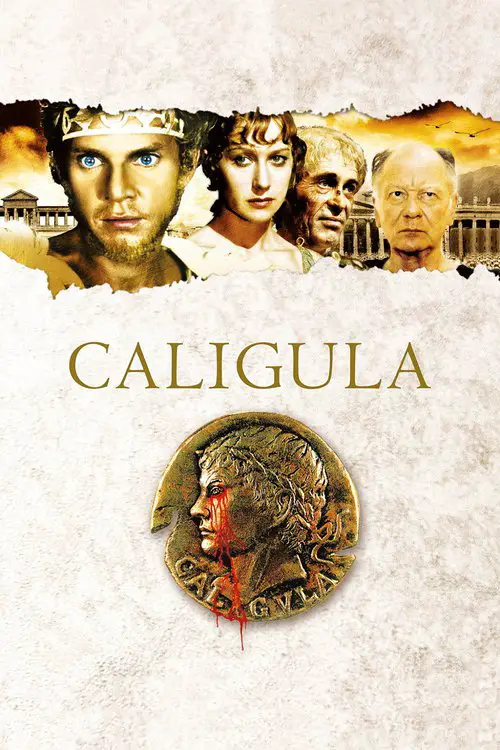Tsar (2009)
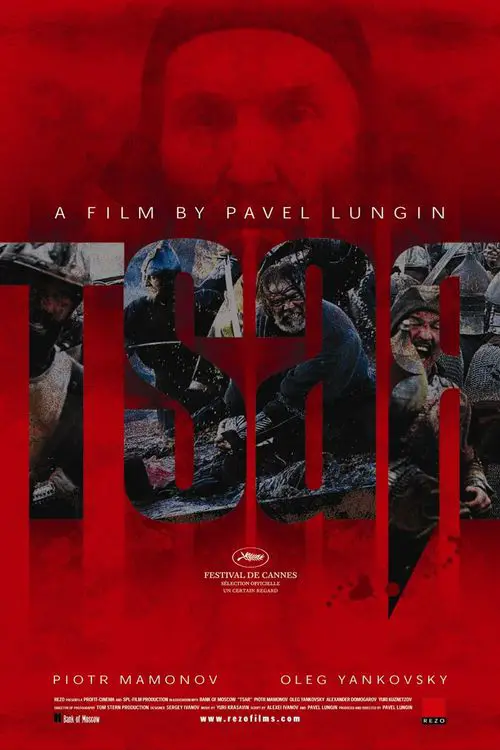
Similar movies
A new doctor from Moscow arrives at a provincial mental institution. His interest is the peculiarities of the psyche of a patient who believes that he is Yakov Yurovsky, the man who assassinated the last Russian tsar. In the course of their conversations it transpires that the patient is a kind of philosopher, not without a gift for suggestion. In a while the doctor himself falls under his patientâs influence: he tends to relive that fatal night of June 16-17, 1918 when, without any investigation or trial, Tsar Nicholas II, who had recently abdicated, was murdered, together with his wife, daughters and incurably ill heir. Soon the doctor realizes that the tragedy of the last Russian tsar is in part his own tragedy, too...
Praised for its fine photography and production design if not its narrative, Sergei Bondarchuk directed this adaptation of the tale by Alexander Pushkin. Boris Godunov came to the Czarist throne at the end of the 16th century, after the original heir to Ivan the Terrible had died. At first, things went well for Godunov (played by Bondarchuk), but when the Russian people began to believe he had killed Ivan the Terrible's son in order to gain the throne, an alliance sprang up against the new Czar. Events continued to spin out of control as a young monk was presented as the son Godunov had supposedly killed. Now he was openly accused of failing an assassination attempt, which seems to be even worse than succeeding. In addition to these woes, Boris Godunov began to suffer serious health problems. So much for the joys of kingship.
After the murder of the Russian Emperor Peter III, who was succeeded by Empress Catherine, Satan decides that the balance between good and evil on Earth has been destabilized. In order to set things right, he sends his representative to Earth - the teacher Farfa, who bears an unusual resemblance to Peter III. His mission is to seize power from the old Duke of Montenegro, and then to take back the Russian throne as Peter III. The people of Montenegro accept Farfa as their new leader, and he proclaims himself the new Emperor, Scepan Mali, successfully resisting an invasion by the Turks. Farfa is touched by the Montenegrins' kindness and courage, falls in love with the beautiful Elfa, and fails to follow Satan's plan. Not one to be crossed, Satan sets out to kill him.
Based on the true story of a Russian serial killer who, over many years, claimed victim to over 50 people. His victims were mostly under the age of 17. In what was then a communists state, the police investigations were hampered by bureaucracy, incompetence and those in power. The story is told from the viewpoint of the detective in charge of the case.
During the Manchurian-ruled Qing Dynasty, Emperor Yong Zheng established a secret assassination squad known as the Guillotines to eliminate all who opposed him. Once heavily favored by the Emperor, the Guillotines are deemed expendable once Emperor Qian Long ascends to the throne and adopts Western ideas and technology. To consolidate his power under a new regime, the Emperor continues to use the Guillotines to persecute the conquered Han Chinese in a reign of terror and oppression. Written by Anynomous
Lenfilm's most recent major production spins a kind of historical fantasy based on real incidents that's full of ominous implications for today. One night, a patrol rushes into the chambers of the Russian prince Pavel, son of the Empress Catherine; the Empress has died, and Pavel is to be anointed the new Tsar. Thought to be feeble-minded at best and crazy at worst, Pavel soon lives up to his enemies' fears: he dismisses long-serving courtiers, demands that peasants only work three days a week, and declares that state officials should start their days at 5 am. Soon, it seems that everyone who can is trying to hatch some kind of plot against him - including his own sons. Sumptuously designed, POOR POOR PAVEL constrasts the imperial splendor of the court with the sordid atmosphere of conspiracies and backstabbing that comes to define these characters' lives.
Al Shaw's life revolves around motor racing and his back country junkyard, the "Smash Palace". His French wife, Jacqui, doesn't appreciate the lack of attention due to Al's obsession with cars. When Al finds her in the arms of another man, he takes his daughter, Georgie and heads for the bush, desperately hoping to hold on to the only family he has left. Written by Evan Yates
In a building site in present-day Tehran, Lateef, a 17-year-old Kurdish worker is irresistibly drawn to Rahmat, a young Afghan worker. When Lateef is given heavier tasks to compensate for new Afghan worker Rahmat, he resents his displacement and treats Rahmat cruelly. After one of his pranks, however, Lateef discovers Rahmat's secret--he is a girl named Baran. Latif's heart softens towards Baran and he shows his new affection for her by doing what he can to ease the hardships she suffers at work. revelation of Rahmat's secret changes both their lives.Baran is a 2001 Iranian film directed by Majid Majidi, based on an original script by Majid Majidi. The movie is set during recent times in which there are a large number of Afghan refugees living on the outskirts of Tehran. Almost a silent movie, Baran won a number of awards both nationally and internationally for the director and writer Majid Majidi.
Raj has always had a unrequited childhood crush on a friend named Tina, but Tina's best friend Pooja has always had a crush on Raj. When Raj's family move to England to get involved in an internet business, Raj promises Tina that he will keep in touch with her and that their friendship will always be forever. However Tina disregards him and chooses not to respond to his first e-mail, in turn Pooja decides to keep in touch with him but signs under Tina's name. Fifteen years later, and their friendship has blossomed via e-mail, Raj believing that he's getting to know Tina when it's really Pooja. His family decides to go back on a holiday to India for 2 weeks, when Tina discovers the truth about Pooja's e-mails, they decide together that Tina will play along with the charade. When Raj arrives in India, he is struck by Tina's beauty but equally as struck to Pooja's personality. Who will he choose?
Edmond, a man in his sixties whose wife has recently passed away, is told about a secret establishment where men can spend an entire night in bed alongside beautiful, sleeping young women, who stretch, roll over and dream, but never awaken. Bedazzled by their seductive yet innocent tenderness, but distressed about the reason for their deep sleep, he delves into the mystery of the house of sleeping beauties.
Young Jinhee is taken by her father to an orphanage near Seoul. He leaves her there never to return, and she struggles to come to grips with her fate. Jinhee desperately believes her father will come back for her and take her on a trip. The film is based on the experiences of the director, an ethnic Korean who was adopted by a French couple in the 1970s.
Bhaskaran is a happy-go-lucky guy, who is yet to complete his B.A. degree, writing arrear examinations annually for years. His only friend is Nallathambi who owns a barber saloon, which he received as a dowry for marrying a two-month pregnant woman. He lives with his mother, Sivakami, brother Saravanan who is a successful veterinarian and sister, Nithya. When his brother marries Nandhini, he gets to meet Nandhini's younger sister Chandrika and wishes to marry her. When he approaches his family for a chance, everyone talks very frankly of his unemployed status which rankles him and he leaves his house to prove himself. With the support of Nallathambi, he establishes a tutorial for Class 10 students and despite early setbacks makes it work, while also convincing Chandrika, who eventually reciprocates his love. However despite all this, Chandrika's father is against her marriage with Bhaskaran for a reason which is revealed in the end.
Salma Zidane, a widow, lives simply from her grove of lemon trees in the West Bank's occupied territory. The Israeli defense minister and his wife move next door; the Secret Service orders the trees removed for security. The stoic Salma seeks assistance from the Palestinian Authority (useless), Israeli army (dismissive), and a young attorney, Ziad Daud, who takes the case; this older client attracts him. While the courts deliberate, the Israelis fence her trees and prohibit her from entering the grove. As the trees wither, the defense minister's wife and, separately, an Israeli journalist, look on Salma with sympathy. In this allegory, does David stand a chance against Goliath?
Hitting an off-the-charts level of subversive allegory, Zulawskiâs second feature is a blood-splattered rampage through a war-charred 1790s Poland that turns the historical epic inside out, and dances on its carcass. Immediately banned in the directorâs Communist Poland for over a decade and a half, The Devil writhes with nonstop demonic energy as it follows an nobleman who, after escaping from prison, swandives into insanity and mass murder. Returning home to his once-rich family â one now reduced to savages â and manipulated by a black-cloaked Satanic stranger at the center of a web of political treachery, the nobleman eventually enacts a Hamlet-like pyrrhic revenge on just about everyone in sight. But The Devilâs most spectacularly intense violence is all emotional, with near-constant outbursts of grief, and desperation of a seizure-like intensity that is downright mesmerizing. â The Cinefamily
Two men and a woman happen to meet in a bar. We learn from their conversations both the intriguing and banal details of their lives. But is anyone really telling the truth? From the meat market, to the president's drinking habit or the soviet cloning project, this allegory opposes different aspects of contemporary Russian society
The film begins in 1857, when India was ruled by the British East India Company. Mangal Pandey (Aamir Khan) is a sepoy, a soldier of Indian origin, in the army of the East India Company. Pandey is fighting in the Anglo-Afghan Wars and saves the life of his British commanding officer, William Gordon (portrayed by Toby Stephens). Gordon is indebted to Pandey and a strong friendship develops between them, transcending both rank and race.
An introverted schoolgirl falls in love and starts a relationship with one of her classmates. Set in a small seaside town in Japan, the love of her life eventually leaves her for her boyfriend in Tokyo. Kayako Kirishima of the third year at a high school feels a sense of isolation in school life and vague admiration and uneasiness in the future. One day she makes friends with EndÅ who is isolated from her surroundings because she remained in the same class for another year. Kayako is strongly attracted by EndÅ who shows her a world that she didn't know.
Sanjay (Sumanth) is an extremely practical guy who believes in nothing but logic and reasoning. He listens to his mind and ignores his heart. Hamsa Vahini (Sneha) is a girl who believes strongly in human bonds and trusts everybody easily. Hamsa likes Sanjay immensely and proposes to marry him. Sanjay too accepts the proposal. In a casual chitchat, Sanjay reveals that he does not love her though he is marrying her. He feels that it is a marriage of convenience and practicality. Sanjay's confession hurts Hamsa and she cancels the engagement. As Sanjay slowly realizes the power of love and starts missing her, Hamsa becomes pragmatic and practical due to her family related circumstances, and ignores his pleas for forgiveness. The rest of the story is all about how she finally accepts Sanjay's love.
A gang of hijackers led by Ian McShane seize a British plane as it is landing in Scandinavia. Ruthless military police chief Colonel Tahlvik is assigned to rescue the plane and it's passengers. But he must also deal with the problem of the British Ambassador, whose residence has been seized by a second group of terrorists. Written by Jonathon Dabell
Banaras: A Mystic Love Story is the name of an Indian Bollywood film directed by Pankaj Parashar released in 2006. The film takes place in the Hindu holy city of Varanasi (the city, once known as Banaras, serves as a destination for the pilgrimage of millions of Hindu worshippers annually) and is centered around the relationship of a young woman with her parents and her lover. The storyline also has a strong religious dimension. Most of the film was shot in Varanasi, with some scenes shot in Mauritius.
Taavi,the enigmatic 18-year-old lead, has just inherited his long-deceased wealthy parents home and estate. It is high school graduation and Taavi's birthday, and after his fiends greet him au natural and are arrested, Taavi invites his friends to the mansion for a wild party. Taavi lives with a recording camera to his eye, a machine that allows his to keep interpersonal distance from everyone. Among his friends are Jere who considers himself a woman's man, Markus (who appears the well-adjusted one, and chubby, pierced Sami whose sexuality is ambiguous. The party gets wild, guests sleep around, and Taavi records it all!
A troupe of travelling players arrive at a small seaport in the south of Japan. Komajuro Arashi, the aging master of the troupe, goes to visit his old flame Oyoshi and their son Kiyoshi, even though Kiyoshi believes Komajuro is his uncle. The leading actress Sumiko is jealous and so, in order to humiliate the master, persuades the younger actress Kayo to seduce Kiyoshi.
A recently married scholar goes on a quest for knowledge of other people's wives, based on his philosophical differences with the Sack Monk. He encounters the Flying Thief, who agrees to help him find women, but only if he attains a penis as big as a horse's. The scholar has a surgeon attach said unit, and he's off and running on his mission, only to find that there are obstacles to his new lifestyle, such as jealous husbands and treacherous females.
The end of the 19th century. A boat filled with Swedish emigrants comes to the Danish island of Bornholm. Among them are Lasse and his son Pelle who move to Denmark to find work. They find employment at a large farm, but are treated as the lowest form of life. Pelle starts to speak Danish but is still harassed as a foreigner. But none of them wants to give up their dream of finding a better life than the life they left in Sweden.
Amelia and Pippo are reunited after several decades to perform their old music-hall act (imitating Fred Astaire and Ginger Rogers) on a TV variety show. It's both a touchingly nostalgic journey into the past, and a viciously satirical attack on television in general and Italian TV in particular, portraying it as a mindless freakshow aimed at morons.
The year 2000 approaches in Jerusalem's Orthodox Mea Shearim quarter, where the women work, keep house, and have children so the men can study the Torah and the Talmud. Rivka is happily and passionately married to Meir, but they remain childless. The yeshiva's rabbi, who is Meir's father, wants Meir to divorce Rivka: "a barren woman is no woman." Rivka's sister, Malka, is in love with Yakov, a Jew shunned by the yeshiva as too secular. The rabbi arranges Malka's marriage to Yossef, whose agitation when fulfilling religious duties approaches the grotesque. Can the sisters sort out their hearts' desires within this patriarchal world? If not, have they any other options?
Elias (Riccardo Scamarcio) is an immigrant in his twenties who tries to get to Europe by a boat along with other illegal immigrants. When the boat is near the Greek shores and they hope they will soon disembark, a marine patrol approaches and Elias jumps into the sea in order to avoid arrest. So do the other people in the boat. He wakes up next morning in a shore with nudists, which is not so bad after all, since he has lost some of his clothes while he was swimming for quite a few hours. He pretends to be a nudist himself, steals some clothes and he pretends he is an employee of the hotel âEden Club-Paradiseâ.
Karma Aur Holi is a Bollywood drama film written and directed by débutante Manish Gupta. The film revolves around an NRI couple, desperate to have a biological child.[1] The couple host a party to celebrate Holi, with Indian and American guests. The plot deals with the events happening further The movie was a box office and critical failure
Madeinusa is a girl aged 14 with a sweet Indian face who lives in an isolated village in the Cordillera Blanca Mountain range of Peru. This strange place is characterized by its religious fervor. From Good Friday at three o'clock in the afternoon (the time of day when Christ died on the cross) to Easter Sunday, the whole village can do whatever it feels like. During the two holy days sin does not exist: God is dead and can't see what is happening. Everything is accepted and allowed, without remorse. Year after year, Madeinusa and her sister Chale, and her father Don Cayo, the Mayor and local big shot, maintain this tradition without questioning it. However, everything changes with the arrival in the village of Salvador, a young geologist from Lima, who will unknowingly change the destiny of the girl.
The film examines the plight of a group of widows forced into poverty at a temple in the holy city of Varanasi. It focuses on a relationship between one of the widows, who wants to escape the social restrictions imposed on widows, and a man who is from the highest caste and a follower of Mahatma Gandhi.
Franco Elica is a film director casting a remake of a pious melodrama in Rome. He's melancholy, heading south for a break. On a beach, he meets a man who films weddings and is roped into helping film the wedding of the daughter of a severe and imperious prince. The wedding is one of convenience - the prince needs money, the groom is a mama's boy. Elica is attracted to the bride, Boda, and tries to convince her not to marry. No matter how outrageous his behavior, the prince keeps Elica on as the wedding director. As the wedding approaches, what's real blurs with Elica's imagination. Is he mad?
Shakespeare's 17th century masterpiece about the "Melancholy Dane" was given one of its best screen treatments by Soviet director Grigori Kozintsev. Kozintsev's Elsinore was a real castle in Estonia, utilized metaphorically as the "stone prison" of the mind wherein Hamlet must confine himself in order to avenge his father's death. Hamlet himself is portrayed (by Innokenti Smoktunovsky) as the sole sensitive intellectual in a world made up of debauchers and revellers. Several of Kozintsev directorial choices seem deliberately calculated to inflame the purists: Hamlet's delivers his "To be or not to be" soliloquy with his back to the camera, allowing the audience to fill in its own interpretations.
This is a story of a great love facing the greatest drama of the history of Russia. Admiral Kolchak is a true war hero and beloved husband and father. One day he meets Anna, the love of his life and the wife of his best friend. The revolution in his heart faces the revolution in his own country His destiny is to become the Supreme Rules of Russia.
Late 17th century. With no access to the sea, Russia suffers great losses in foreign trade. Peter tries to capture the Turkish fortress of Azov, but with no success: he can win only if he has a fleet. Peterâs ukases provoke the Boyarsâ indignation. Europe looks in amazement: the Russian tsar begins to work at a Dutch shipyard learning the subtleties of shipbuilding?! But his training is cut short. Peter has to return to Russia in order to brutally suppress the Streltsy rebellion organized by his sister Sophia.
The perversion behind imperial Rome, the epic story of Rome's mad Emporer. All the details of his cruel, bizarre reign are revealed right here: His unholy sexual passion for his sister, his marriage to Rome's most infamous prostitute, his fiendishly inventive means of disposing those who would oppose him, and more.
Two families, cotton merchants in England and America, with branches in France and Prussia swear to stand by each other in a belief that a great business firmly established in four countries will be able to withstand even such another calamity as the Napoleonic Wars from which Europe is slowly recovering. Then many years later, along comes World War One and the years that follow, to test the businesses.
In the early 1200s, Dogen brought Chinese Zen philosophy to Japan, and established the Japanese Zen sect of Buddhism. He taught that a person was capable of realizing Buddhahood within himself, by way of Zazen. Zazen is extended hours of sitting and meditating to achieve a state of âMuâ (nothingness, or empty existence).
© Valossa 2015–2024

